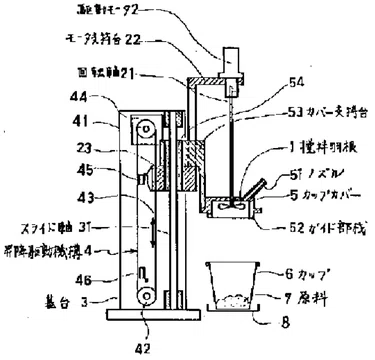
Last week, Nate wrote a post titled "Demonstrative Lost" about an instance where the Court rejected the parties' attempt to lodge demonstrative exhibits used at trial in the record.
In response, we heard from a reader about an upcoming and brand-new rule of evidence, FRE 107, that may address exactly this point, plus some other issues regarding demonstratives at trial.
Here is the text of the new rule, which is projected to take effect on December 1, 2024:
Rule 107. Illustrative Aids
(a) Permitted Uses. The court may allow a party to present an illustrative aid to help the trier of fact understand the evidence or argument if the aid’s utility in assisting comprehension is not substantially outweighed by the danger of unfair prejudice, confusing the issues, misleading the jury, undue delay, or wasting time.
(b) Use in Jury Deliberations. An illustrative aid is not evidence and must not be provided to the jury during deliberations unless:
(1) all parties consent; or
(2) the court, for good cause, orders otherwise.
(c) Record. When practicable, an illustrative aid used at trial must be entered into the record.
(d) Summaries of Voluminous Materials Admitted as Evidence. A summary, chart, or calculation admitted as evidence to prove the content of voluminous admissible evidence is governed by Rule 1006.
The Committee Note for the new rule explains that the new term "illustrative aid" should be used to refer to what we all have been calling "demonstratives" or "demonstrative exhibits":
The term “illustrative aid” is used instead of the term “demonstrative evidence,” as that latter term has been subject to differing interpretation in the courts. An illustrative aid is any presentation offered not as evidence but rather to assist the trier of fact in understanding evidence or argument. “Demonstrative evidence” is a term better applied to substantive evidence offered to prove, by demonstration, a disputed fact.
The notes seem to redefine "demonstrative evidence" in a way that is opposite of how it is used now, at least in Delaware and other courts in which I've practiced: as information "offered to prove" a disputed fact. Typically a "demonstrative" is not offered to prove a fact (and is not admissible), but rather to help explain or convey other evidence, such as documents or testimony. Now that category will be called illustrative aids.
The Committee is adamant that the current usage of the term "demonstrative" is incorrect:
[T]he category [of courtroom information] covered by this rule . . . is information offered for the narrow purpose of helping the trier of fact to understand what is being communicated to them by the witness or party presenting evidence or argument. Examples may include drawings, photos, diagrams, video depictions, charts, graphs, and computer simulations. These kinds of presentations, referred to in this rule as “illustrative aids,” have also been described as “pedagogical devices” and sometimes (and less helpfully) “demonstrative presentations”—that latter term being unhelpful because the purpose for presenting the information is not to “demonstrate” how an event occurred but rather to help the trier of fact understand evidence or argument that is being or has been presented.
Well, I'm glad they went with "illustrative aids," at least, and didn't force us all to run around talking about our "pedagogical devices."
I wonder: in 10 years, will we all be calling them "illustratives" instead of "demonstratives"? That seems like an odd thing to spend our collective mental energy on, but we'll see.
Other than changing the name, the primary thrust of the rule is consistent with existing practice. Demonstratives already do not go back to the jury. Likewise, the Court already excludes demonstratives when "the aid’s utility in assisting comprehension is . . . substantially outweighed by the danger of unfair prejudice, confusing the issues, misleading the jury, undue delay, or wasting time"—although it will be nice to have an explicit rules-based standard with which to make this argument.
Part of the Record
One place where the rule may differ from current practice is that it says that demonstratives—err, "illustrative aids"—"must be entered into the record" when practicable.
The implications of this are somewhat unclear. Does that mean they have to be filed on the docket, contrary to the Court holding that we discussed last week?
I'm not sure about that. After all, admitted trial exhibits are absolutely "part of the record," and they are not filed on the docket. And many other things are colloquially referred to as part of the "record" when they clearly are not docketed (e.g., deposition transcripts). FRCP 56 likewise discusses "citing to . . . materials in the record, including depositions, documents, [and] electronically stored information" that are absolutely not on the docket.
The committee notes don't elaborate on this point, other than describing a marking process consistent with the current D. Del. practice:
While an illustrative aid is not evidence, if it is used at trial it must be marked as an exhibit and made part of the record, unless that is impracticable under the circumstances.
In D. Del., trial demonstratives are typically marked with PDX or DDX numbers, or similar (trial exhibits, likewise, are typically marked with PTX and DTX numbers). This is not necessarily because marked demonstratives are necessarily "in the record," but instead to have a way to refer to them in questions, testimony, argument, and objections.
As far as being in the record, while copies of trial exhibits are normally provided to the Court (outside of the docket), copies of trial demonstratives may or may not be. This new rule could be provide grounds for providing demonstratives to the Court as well, perhaps at the same time as trial exhibits. But we'll have to see whether and how the Court may change its practices in light of the new rule.
Many thanks to Jonathan Herstoff of Haug Partners LLP, who flagged this upcoming rule change for us!
If you enjoyed this post, consider subscribing to receive free e-mail updates about new posts.



